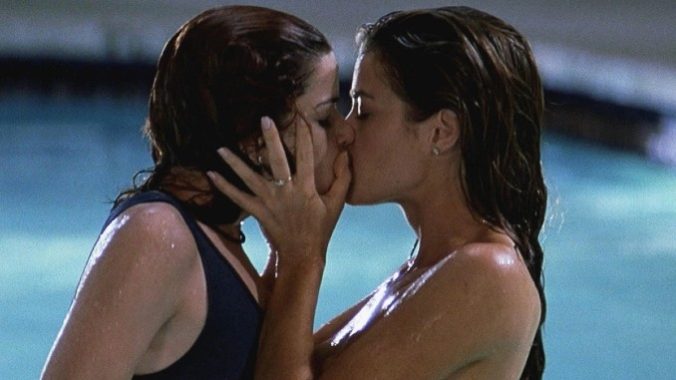Wild Things at 25: White Trash Hitchcock Still Slaps

You gotta respect the audacity of a film with the first line: “Fuck off!”
It’s just one of many reasons why director John McNaughton’s Wild Things remains such a brazen, clever and unpredictable neo-noir 25 years after its release. It’s the most “Florida Man” of movies, embracing every cliché and trope the 27th state has to offer–from its nouveau riche South Floridians to its white trash gator parks–and then uses them against the audience. Its lean 108 minutes is packed with a neverending smokescreen of sex and lust that lulls the audience into fugue of horniness, then unleashes a dazzling array of twists that pummel our preconceived notions, proving just how canny this thriller really is.
It’s pretty clear Wild Things doesn’t get the respect of other great “gotcha” mysteries because it wears its horniness on its sleeve and is unapologetic about using a trash-forward approach as its hook. For those who want to poo-poo that manner, it’s all the more easy to brush off, or just forget, how inventive Stephen Peters’ script (with Kem Nunn punch-ups) is. It deftly weaves together the smarts of Hitchcock, the lurid sensibilities of Joe Eszterhas (Basic Instinct, Showgirls), and even the Greek mythology of Medea and Phaedra.
One of the best tells about just how good Wild Things is sits right in the casting: The ruse of obvious sex appeal is easily landed with Denise Richards and Matt Dillon, but then the brainier names of Kevin Bacon, Neve Campbell and Bill Murray also appear and the universal response is, “Wait, they’re in this too?” Their taste and résumés immediately infer quality, and that certainly ends up being the case. Everyone rises to the same heightened plane of overblown emotions. Not quite camp, but clearly a wink and a nod beyond the norms.
-

-

-

-

-

-

-

-

-

-

-

-

-

-

-

-

-

-

-

-

-

-

-

-

-

-

-

-

-

-

-

-

-

-

-

-

-

-

-

-








































